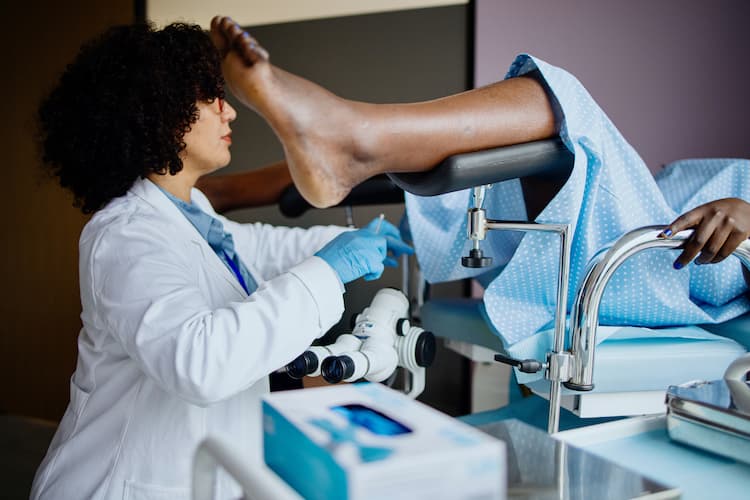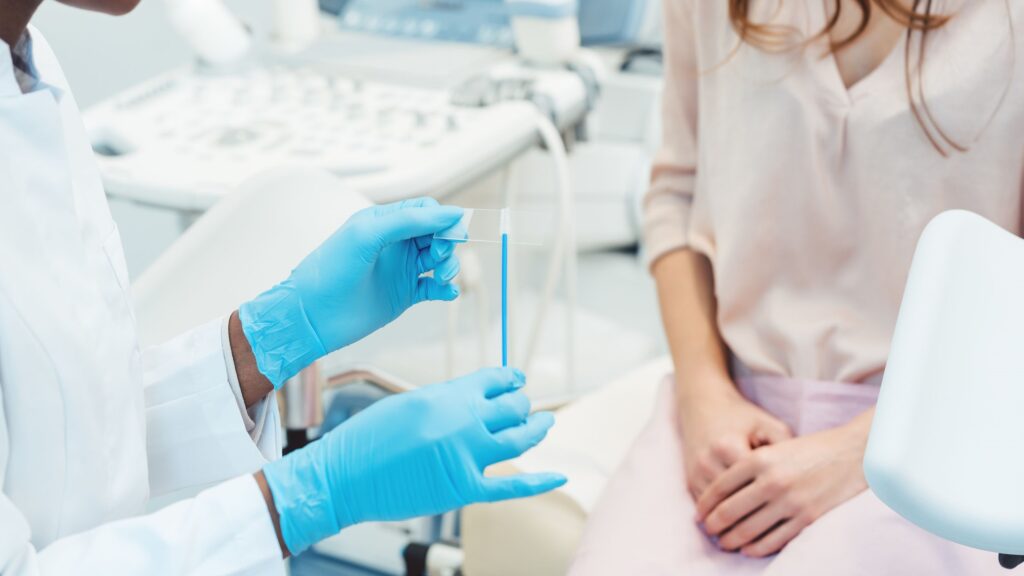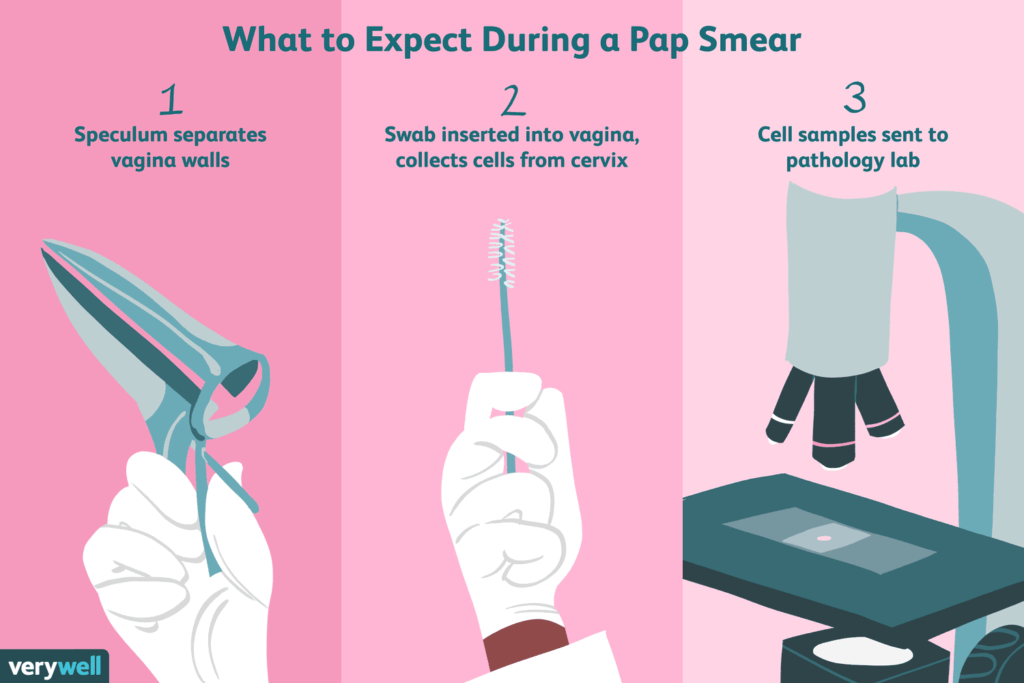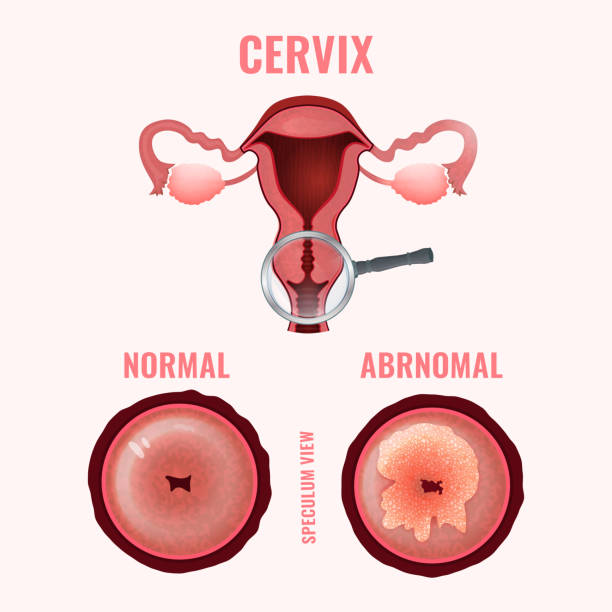
Following the upcoming International Women’s Day this 8 March 2023, let’s know more about how to take care of our health as a woman. It’s time to look into reasons, procedure & what the Pap Smear means.
Pap Smear: Reasons, Procedure & Results

A Pap smear, also called a Pap test, is a screening procedure for cervical cancer. It tests for the presence of precancerous or cancerous cells on your cervix. The cervix is the opening of the uterus.
During the routine procedure, cells from your cervix are gently scraped away and examined for abnormal growth. The procedure is done at your doctor’s office. It may be mildly uncomfortable, but doesn’t usually cause any long-term pain.
Why Pap Smear Is Important?

A pap smear is done to look for changes in cervical cells before they turn into cancer. If you have cancer, finding it early on gives you the best chance of fighting it. If a woman skips tests, she may be putting herself at risk.
Even though women may need less frequent Pap smears, they still need to visit their gynaecologist for annual exams. A Pap smear is not the same test as a pelvic exam, which can help doctors find abnormalities beyond just the cervix. Additionally, women can discuss birth control, hormone issues and other important topics at their annual exams.
How Often Should You Do The Test?

Women ages 21-65 should have a Pap smear on a regular basis. How often you do depends on your overall health and whether or not you’ve had an abnormal Pap smear in the past.

For better insight, check out the table below:
| Age | Pap Smear Frequency |
| <21 years old | None needed |
| 21-29 | Every 3 years |
| 30-65 | Every 3 years or an HPV test every 5 years / a Pap test and HPV test together every 5 years |
| 65 and older | You may no longer need Pap smear test; talk to your doctor to determine your needs |
These recommendations only apply to women who have a cervix. Women who have had a hysterectomy with removal of the cervix and no history of cervical cancer do not need screening.
Always talk to your doctor or gynaecologist as recommendations vary and should be individualised.
What To Prepare for The Test?
If you’ll be menstruating on the day of your Pap smear, your doctor may want to reschedule the test, since results could be less accurate.
Try to avoid having sexual intercourse, douching, or using spermicidal products the day before your test because these may interfere with your results.
In most cases, it’s safe to have a Pap smear in the first 24 weeks of a pregnancy. After that, the test may be more painful. You should also wait until 12 weeks after giving birth to increase the accuracy of your results.
Since Pap smears go more smoothly if your body is relaxed, it’s important to stay calm and take deep breaths during the procedure.
What Happens During A Pap Smear?

During the Pap Smear procedure, you’ll lie on your back on an examination table with your legs spread and your feet resting on supports called stirrups.
Your doctor will slowly insert a device called a speculum into your vagina. This device keeps the vaginal walls open and provides access to the cervix.

Your doctor will scrape a small sample of cells from your cervix. There are a few ways your doctor can take this sample:
- Some use a tool called a spatula
- Some use a spatula and a brush
- Others use a device called a cytobrush, which is a combination of spatula and brush
Most women feel a slight push and irritation during the brief scraping. The sample of cells from your cervix will be preserved and sent to a lab to be tested for the presence of abnormal cells.
After the test, you might feel mild discomfort from the scraping or a bit of cramping. You could also experience very light vaginal bleeding immediately following the test. Tell your doctor if discomfort or bleeding continues after the day of the test.
What Does The Pap Smear Results Mean?

There are two possible results from a Pap smear: normal or abnormal.
Normal Pap Smear Result
If your results are normal, that means that no abnormal cells were identified. Normal results are sometimes also referred to as negative. If your results are normal, you probably won’t need a Pap smear for another three years.
Abnormal Pap Smear Result
If the test results are abnormal, this doesn’t mean you have cancer. It simply means that there are abnormal cells on your cervix, some of which could be precancerous. There are several levels of abnormal cells:
- atypia
- mild
- moderate
- severe dysplasia
- carcinoma in situ
Milder abnormal cells are more common than severe abnormalities. Depending on what the test results show, your doctor may recommend:
- increasing the frequency of your Pap smears
- getting a closer look at your cervical tissue with a procedure called colposcopy
During a colposcopy exam, your doctor will use light and magnification to see vaginal and cervical tissues more clearly. In some cases, they may also take a sample of your cervical tissue in a procedure called a biopsy.
The accuracy of pap tests are very high and it really helps in reducing cervical cancer rates and mortality by at least 80%.

As quoted from Michelle Obama, Former First Lady of the United States:
There is no limit to what we, as women, can accomplish.
Michelle Obama, Former First Lady of the United States
But it all needs a healthy body for you to achieve everything you dream for in life. Your health always comes first, okay? Pap smear is not something common in Malaysia but now since we all knew the Pap smear procedure, it’s time to start taking this seriously.
More to read about healthcare:










